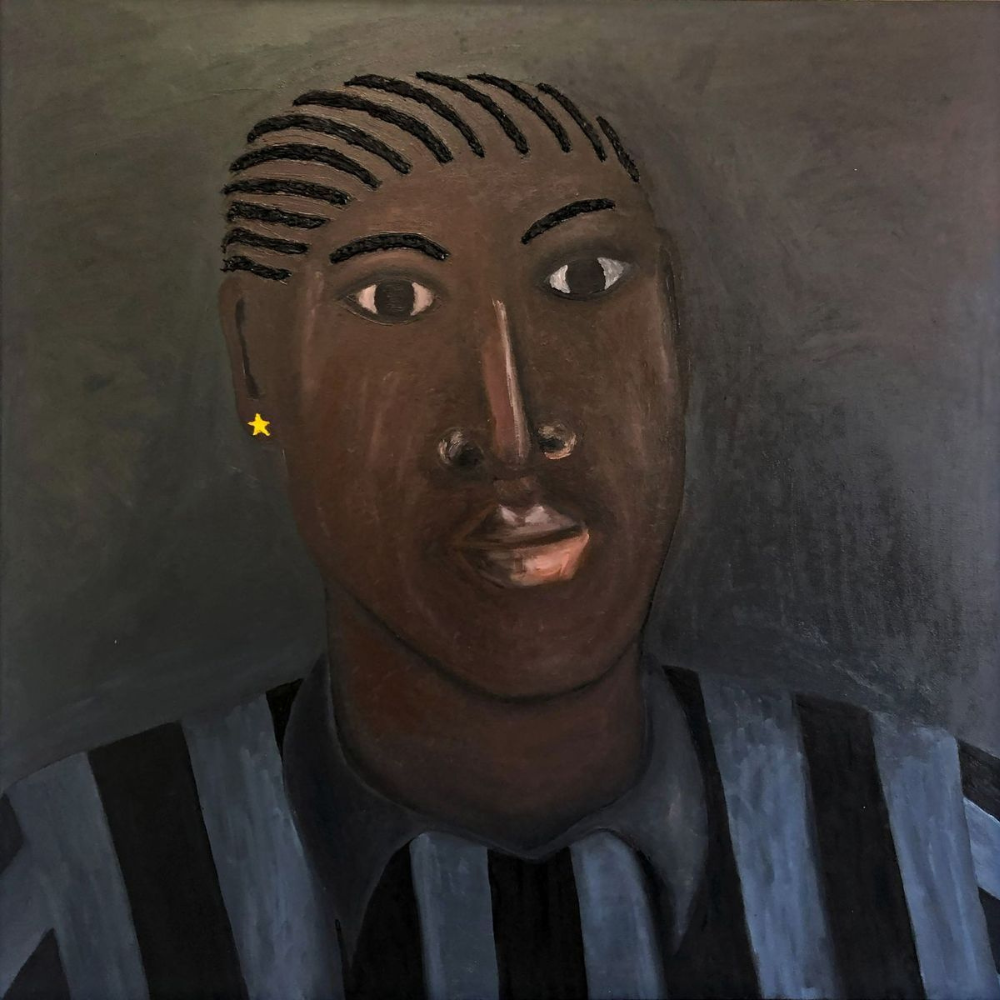Jakinda Mshindi Boya

My practice explores the historical underrepresentation and misrepresentation of black people in contemporary art as well as popular culture. I seek to portray the many facets of the black experience, normalizing a nuanced perception of blackness in contrast to the often stereotypical/one dimensional perceptions promoted in the media. I use my own life experiences as a black man born and raised in Johannesburg to represent my perception of blackness, its complexity and its beauty. As a result, the current phase of my work primarily focuses on black men. I explore my ideas through the centuries old practice of portraiture, focusing on individuals and exploring how these nuanced identities are often expressed through the way they dress, the hairstyles they choose etc. Through these choices I believe people form the "characters" they want to be in life and thus my style is largely based on stylized character based portraits. I'm inspired by the idea that in reality we are all "performing" who we are through the various roles that we play in life and we become identifiable through the way we choose to express ourselves. So much so that in some cases we create a sort of uniform that classes us amongst our peers. I have recently explored these uniform motifs through football jerseys and how football is a form of escapism for black people. This idea of escapism is also tied in with spirituality and how certain football players are viewed as "godly". These football jerseys then become a symbol of one imagining themselves as this godly/hero figure, rising above challenges (as black people often have to do more than any other race). Through these motifs and symbols I aim to express multiple sides of blackness, touching on black masculinity, black joy, struggle and resilience. My medium of choice is oil on canvas, subverting its white male dominated history and using it as a trojan horse to tell black stories in white spaces. My style is deliberately "unacademic" in an attempt to create a more pop culture influenced style that is more identifiable with the average black person. I don't want my work to be "over-intellectualized", as the art world often feels, because that then because a form of alienating those who are not part of the formal institutions and more often than not those people are black.
Read More
There are currently no artworks by this artist available on Latitudes. Please contact info@latitudes.online if you would like us to source works.





